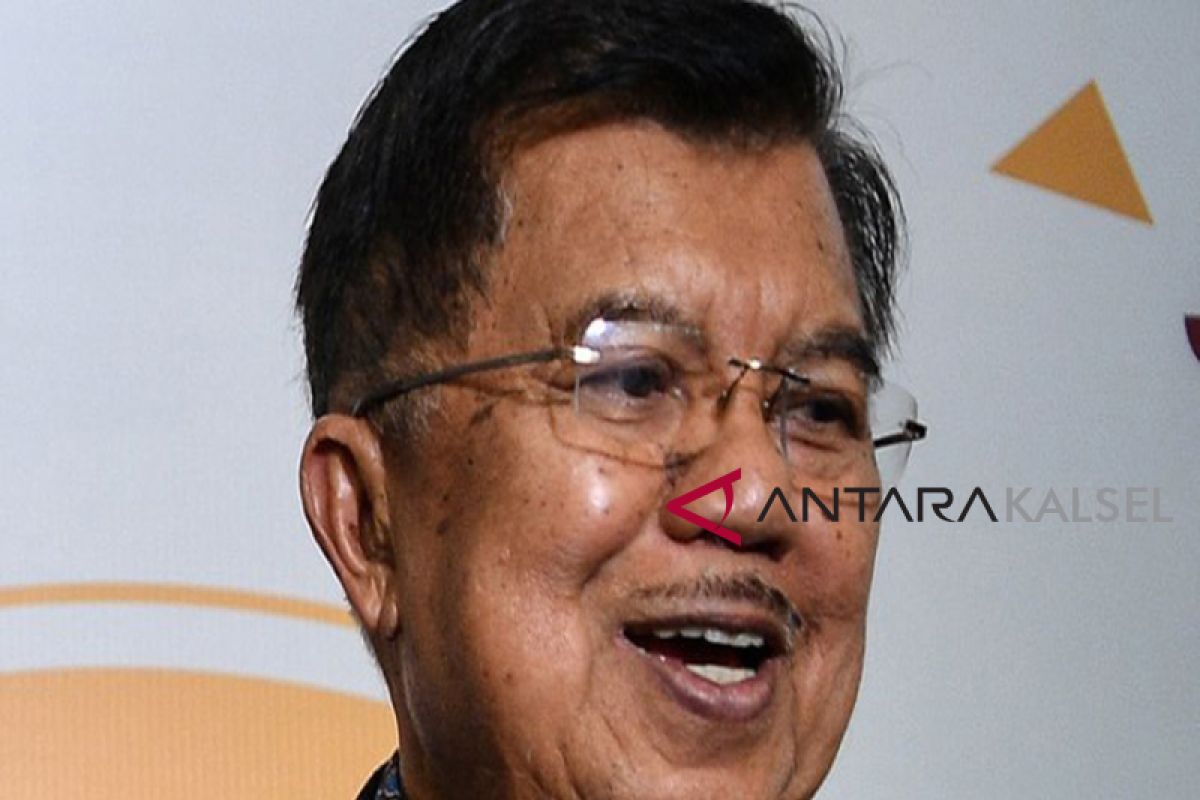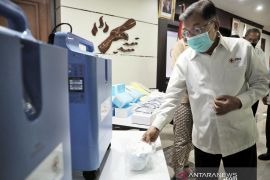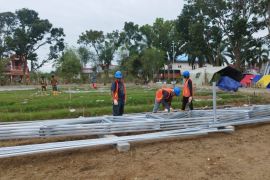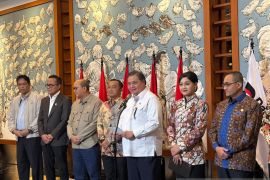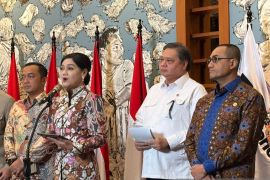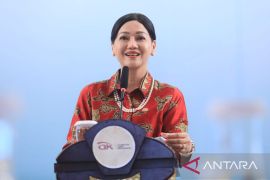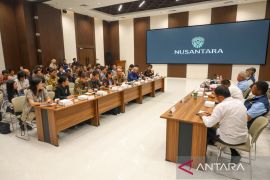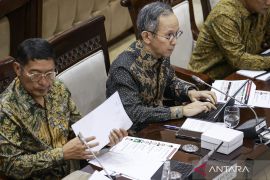We do not want to be just consumers of technology. In its place, we must also be part of innovation. Technology indicates an advancement, but it is also a challenge, as it changes human life and behaviorBogor, W Java (ANTARA) - This year marks the end of Vice President Muhammad Jusuf Kalla's leadership term as he will be replaced by Ma'ruf Amin, incumbent President Joko Widodo's (Jokowi's) running mate in the 2019 Presidential Elections. His presence at this year's flag-raising ceremony at the Merdeka Palace to commemorate the 74th anniversary of Indonesia's Independence Day on August 17 will also be the last historic moment for him in his capacity as the country's vice president.
Despite the fact that this noted figure, who was born in Watampone, Bone District, South Sulawesi Province, on May 15, 1942, will leave the government, his endless contributions to the nation will never be forgotten.
His great contribution to the attainment of everlasting peace in Aceh, the westernmost province of Indonesia which lies on the northernmost tip of Sumatra Island, for instance, will be recorded for posterity in the country's modern history.
His insightful views and perspectives on how to make a stronger and better Indonesia that he has conveyed at different fora during his vice presidential term may also be regarded as valuable inputs for the Jokowi-Amin administration.
In addressing the fact that Indonesia has yet to be part of global innovation networks, Kalla has reminded Indonesians to not be trapped in a condition that makes them mere consumers of the world's rapid technological developments.
"We do not want to be just consumers of technology. In its place, we must also be part of innovation. Technology indicates an advancement, but it is also a challenge, as it changes human life and behavior," Kalla affirmed on July 22.
Innovation in Indonesia can only be enhanced if its human resources are good and capable, Kalla pointed out while speaking at the opening ceremony of the 2019 Indonesia Development Forum (IDF) held at the Jakarta Convention Center (JCC) in Senayan, Central Jakarta.
Indonesia would be able to have a pool of well-trained and educated human resources only if it were to improve the quality of education for its people, he emphasized.
Related news: Indonesians must not remain mere consumers of world's technology
Besides a dire need to improve its people's quality of education, when speaking at a seminar on economic transformation for advancing Indonesia, in Jakarta on August 9, Kalla highlighted the importance of having assertive political policies and a large number of entrepreneurs for the country.
With these variables, Indonesia will be able to realize its economic transformation from traditional agriculture to industry to be on par with other Asian countries, he believed.
Kalla referred to the experiences of Korea, Japan, Taiwan, and Singapore that are termed as "The Four Asian Dragons," saying that they witnessed an economic transformation, from agriculture to industry, to enable them to enjoy added values and capability to compete in the global economy.
China was able to transform its economy, from an agrarian state to an industrial one within three decades, making it one of the world's largest producers.
"Our first and foremost homework is having assertive and solid policies for transforming our economy. These had been carried out by Lee Kuan Yew (Singapore), Deng Xiaoping (China), and Park Chung Hee (South Korea)."
In addition to assertive political policies, shifts in the industrial sector also demand a huge number of entrepreneurs, technological capability, and financial capital to run business activities, Kalla noted.
In addition to the homework stated above, Kalla further opined that the country's current challenges are no longer related to foreign invasion but to the global dominance of foreign countries in economy and technology.
"At the regional level, our major challenges are related to economy," he told middle-rank officers of the Indonesian military (TNI) and police at the Navy Staff and Command School (Seskoal) on August 14.
Based on several research reports and predictions, Indonesia would not face an inter-state adversary that would pave the way for a foreign invasion in the next 20 to 30 years, Kalla argued.
Instead, the possible attacks on Indonesia from foreign countries would be related to economic capability, particularly in connection with an ability to increase export-oriented industrial products.
Related news: Indonesia's real challenges no longer related to foreign invasion: VP
With regard to this issue, Indonesia has been challenged by China because the world's second-biggest economy could likely "attack" Indonesia by flooding its domestic markets with cheap products.
"China will not invade Indonesia. Instead, it will 'attack' us for our economic capability, and our industry may get stuck if we have no resilience," Kalla said.
Strengthening economic resilience was an indispensable fact for Indonesia not only to address the economic dominance of other countries but also to maintain its internal social and security stability, he said.
The economic crisis that Indonesia underwent in 1998 ended with social unrests in which, due to its economic hardship, so many shops were looted and robbed, Kalla argued.
"At that moment, we were united in building our nation. We were not disunited but together," he said.
By considering the existing challenges, Kalla urged the middle-rank officers of both TNI and the National Police to adapt Indonesia's defense and security-related strategies to the demands of the world's current economic condition.
"The TNI and National Police are not only under pressure to be ready for war but they are also requested to be ready for responding to the nation's social problems. The winner will be the one who is excellent in innovation, technology, and economy," he said. (INE)
EDITED BY INE
Related news: Renewable energy plants development remains sluggish: Kalla
Related news: Kalla stresses assertive political policy for economic transformation
Editor: Fardah Assegaf
Copyright © ANTARA 2019
